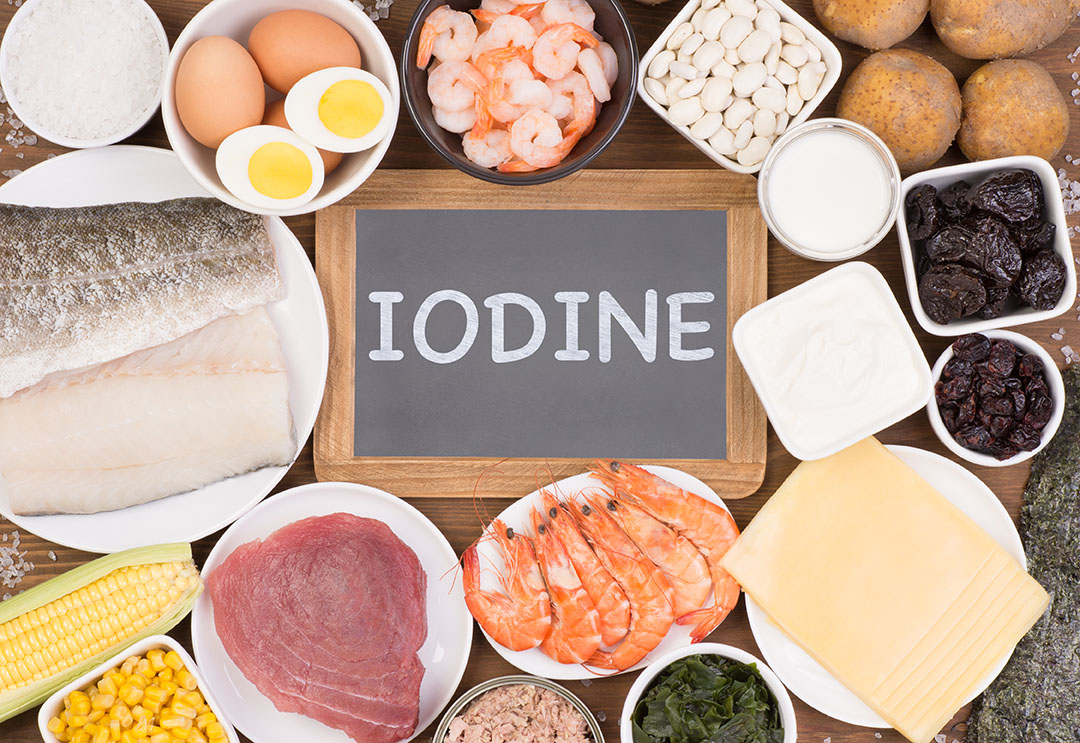
< Back
iodine
Definition
Iodine is a chemical element with the symbol I and atomic number 53. It is a non-metallic halogen that is abundant in nature. Iodine is a critical nutrient for humans and other animals. It is essential for the production of thyroid hormones, which regulate metabolism.
Iodine deficiency is a major public health problem, especially in developing countries. It can lead to a condition called goiter, which is an enlargement of the thyroid gland. Goiter can cause other health problems, such as hypothyroidism, which is a condition where the thyroid gland does not produce enough hormones.
Iodine is found in seafood, dairy products, and eggs. It is also added to salt in many countries. The recommended daily intake of iodine for adults is 150 micrograms.
Iodine is an important nutrient that is essential for human health. It is important to get enough iodine in your diet to prevent deficiency and its associated health problems.
How can the word be used?
The water in this community is iodinated to prevent iodine deficiency.

Different forms of the word
The noun form of iodine is simply "iodine". It can be used to refer to the chemical element itself, or to a solution of iodine in alcohol. For example, you might say "Iodine is an essential nutrient for the thyroid gland." or "I used iodine to disinfect the cut on my finger.".
The adjective form of iodine is "iodinated". This is used to describe something that has been treated with iodine. For example, you might say "The salt in this shaker is iodized." or "The doctor prescribed an iodinated solution for my cuts.".
The verb form of iodine is "iodinate". This means to treat something with iodine. For example, you might say "The water in this community is iodinated to prevent iodine deficiency." or "The doctor will iodinate my cuts to prevent infection.".
Etymology
The word "iodine" comes from the Greek word "iodes", which means "violet". This is a reference to the color of the vapor given off when iodine crystals are heated.
Question
What is iodine used for?
AQA Science Exam Question and Answer
Question:
Discuss the role of iodine in the human body, highlighting its significance for thyroid function and overall health. Explain how iodine deficiency can lead to thyroid disorders and the importance of incorporating iodine-rich foods into the diet.
Answer:
Iodine is a trace element essential for proper thyroid function and overall health in the human body. The thyroid gland uses iodine to produce thyroid hormones, namely thyroxine (T4) and triiodothyronine (T3), which play a crucial role in regulating metabolism, energy production, and growth.
Iodine deficiency can have serious consequences on thyroid health. When the body lacks sufficient iodine, the thyroid gland becomes enlarged in an attempt to trap more iodine from the bloodstream, leading to a condition known as goitre. Prolonged deficiency can result in thyroid disorders, such as hypothyroidism (underactive thyroid) or hyperthyroidism (overactive thyroid), causing disruptions in energy levels, metabolism, and other bodily functions.
Incorporating iodine-rich foods into the diet is essential to prevent deficiency. Seafood, particularly fish and seaweed, is a great source of iodine. Additionally, iodized salt is commonly used to ensure an adequate intake of this vital nutrient.
Ensuring proper iodine intake is crucial for maintaining thyroid function and overall health. By supporting thyroid hormone production, iodine contributes to balanced metabolism, energy regulation, and normal growth and development. A well-balanced diet that includes iodine-rich foods is essential for preventing thyroid disorders and promoting optimal health.